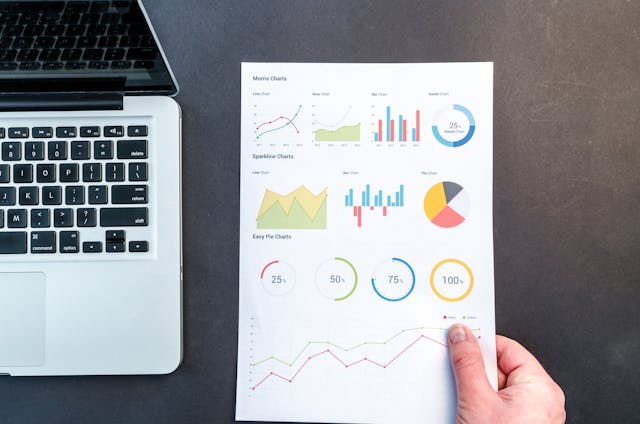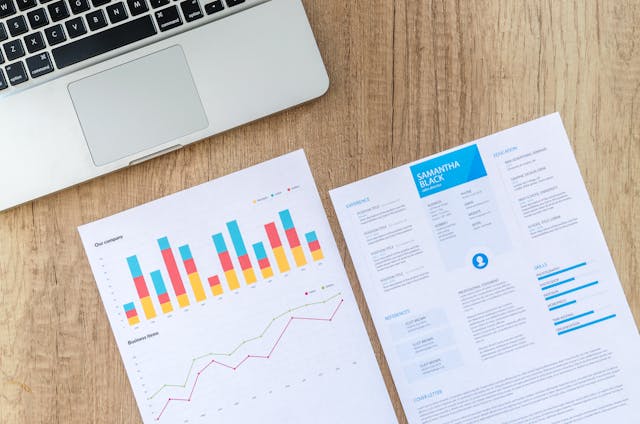In today’s digital world, data is one of the most valuable assets a business can have. For small businesses, data analytics provides insights that drive better decision-making, improve efficiency, and enhance customer experiences. Whether tracking customer behavior, optimizing marketing strategies, or improving operational efficiency, data analytics can give small businesses a competitive edge.
Many small business owners believe data analytics is only for large corporations, but with advancements in technology, even the smallest businesses can leverage data to drive growth. This guide will explore the importance of data analytics, key benefits, types, tools, challenges, and best practices for small businesses looking to harness the power of data.
Summary
Data analytics is crucial for small businesses as it helps optimize decision-making, streamline operations, and improve customer experiences. By collecting and analyzing data, businesses can identify trends, reduce costs, and increase profitability. This guide provides an in-depth look at the benefits of data analytics, essential tools, challenges, and best practices to help small businesses succeed in the data-driven economy.
What Is Data Analytics?

Data analytics refers to the process of collecting, processing, and analyzing data to gain insights that help businesses make informed decisions. It involves using various techniques, tools, and methodologies to interpret data patterns and trends.
For small businesses, data analytics can be used to:
• Understand customer preferences and behavior
• Optimize marketing campaigns
• Improve inventory management
• Identify cost-saving opportunities
• Enhance business operations
With the rise of digital tools, small businesses can now access affordable analytics solutions to improve their efficiency and profitability.
Importance of Data Analytics for Small Businesses

Data analytics is essential for small businesses because it allows them to compete with larger enterprises by making data-driven decisions. Here are some key reasons why data analytics is important:
1. Improved Decision-Making
By analyzing sales trends, customer behavior, and market data, small businesses can make better strategic decisions rather than relying on intuition.
2. Enhanced Customer Understanding
Data analytics helps businesses understand customer preferences, buying habits, and pain points, allowing them to tailor their products and services accordingly.
3. Increased Efficiency and Cost Savings
Analyzing operational data can help businesses identify inefficiencies and reduce costs by optimizing processes.
4. Better Marketing Strategies
By tracking website traffic, social media engagement, and customer interactions, businesses can refine their marketing strategies for better ROI.
5. Competitive Advantage
Small businesses that use data analytics gain insights into industry trends and customer expectations, giving them an edge over competitors who rely on guesswork.
Types of Data Analytics

Data analytics is categorized into four main types, each serving a unique purpose:
1. Descriptive Analytics
This involves analyzing past data to understand what has happened in the business. Example: Tracking monthly sales reports to identify peak seasons.
2. Diagnostic Analytics
This type of analysis helps businesses understand why something happened. Example: Identifying the reasons behind a sudden drop in sales.
3. Predictive Analytics
Predictive analytics uses historical data and machine learning to forecast future trends. Example: Predicting future customer demand for a product based on past sales.
4. Prescriptive Analytics
This type of analysis provides actionable recommendations based on data insights. Example: Suggesting optimal pricing strategies based on customer purchasing behavior.
By leveraging these types of analytics, small businesses can improve their decision-making and performance.
How Small Businesses Can Collect and Analyze Data

To make the most of data analytics, small businesses need to collect and analyze data effectively. Here’s how:
1. Identify Key Data Points – Determine which data is most relevant to your business, such as sales data, customer demographics, or website traffic.
2. Use Digital Tools – Implement software like Google Analytics, CRM systems, and POS systems to track data automatically.
3. Leverage Customer Feedback – Collect reviews and surveys to gain insights into customer experiences and expectations.
4. Analyze and Interpret Data – Use data visualization tools like Microsoft Power BI or Tableau to make sense of complex data sets.
5. Take Action – Apply insights gained from analytics to improve operations, marketing, and customer service.
Essential Data Analytics Tools for Small Businesses

There are many affordable data analytics tools designed specifically for small businesses. Some of the best options include:
1. Google Analytics – Tracks website traffic and user behavior.
2. Microsoft Power BI – Offers advanced data visualization and reporting.
3. Tableau – Provides interactive dashboards for data analysis.
4. HubSpot CRM – Helps track customer interactions and sales performance.
5. QuickBooks – Analyzes financial and accounting data.
6. Zoho Analytics – A budget-friendly analytics platform for small businesses.
Using these tools can help small businesses leverage data for growth and profitability.
Common Challenges in Data Analytics and How to Overcome Them

Despite its benefits, small businesses may face some challenges when adopting data analytics:
1. Lack of Technical Knowledge
• Solution: Use user-friendly tools like Google Analytics and invest in basic training.
2. Data Overload
• Solution: Focus on key performance indicators (KPIs) relevant to your business goals.
3. Budget Constraints
• Solution: Use free or low-cost data analytics tools to start.
4. Data Security Concerns
• Solution: Implement strong cybersecurity measures and comply with data protection regulations.
By addressing these challenges, small businesses can successfully integrate data analytics into their operations.
Best Practices for Implementing Data Analytics

To maximize the benefits of data analytics, small businesses should follow these best practices:
1. Set Clear Goals – Define what you want to achieve with data analytics, such as increasing sales or improving customer retention.
2. Collect Quality Data – Ensure data accuracy and reliability to make informed decisions.
3. Use Data Visualization – Simplify data interpretation using graphs, charts, and dashboards.
4. Integrate with Other Business Tools – Connect analytics tools with CRM, accounting, and marketing platforms.
5. Monitor and Adjust Strategies – Regularly analyze data to refine business strategies and improve performance.
How Data Analytics Can Drive Business Growth

Data analytics helps small businesses grow by:
• Identifying new market opportunities
• Enhancing customer retention strategies
• Optimizing pricing and inventory management
• Improving operational efficiency
• Enabling personalized marketing campaigns
By leveraging data insights, small businesses can make smarter business decisions and scale effectively.
Conclusion
Data analytics is no longer just for large corporations—small businesses can also use it to gain valuable insights, reduce costs, and improve customer satisfaction. By using affordable tools, following best practices, and overcoming common challenges, small businesses can make data-driven decisions that lead to sustainable growth and success.
FAQs
Question 1: What is the best data analytics tool for small businesses?
Answer: Google Analytics and Microsoft Power BI are great starting points for small businesses.
Question 2: How can small businesses collect customer data?
Answer: Businesses can use online surveys, website analytics, social media insights, and CRM systems to collect data.
Question 3: Do small businesses need a data analyst?
Answer: Not necessarily. Many analytics tools are user-friendly and designed for business owners without technical expertise.
Question 4: How does data analytics improve marketing?
Answer: It helps track customer behavior, optimize ad campaigns, and improve targeting strategies.
Question 5: Is data analytics expensive for small businesses?
Answer: No, there are free and budget-friendly analytics tools available for small businesses.

As someone exploring ways to make more informed decisions in my personal and professional life, I find data analytics an invaluable tool. The ability to interpret data patterns and trends helps me align my strategies with clear insights. Whether it’s understanding customer behavior or optimizing resources, the possibilities are endless. I’m particularly interested in how small businesses like mine can leverage affordable analytics solutions to enhance efficiency and profitability. Investing in data-driven approaches is no longer optional—it’s a necessity for sustainable growth.